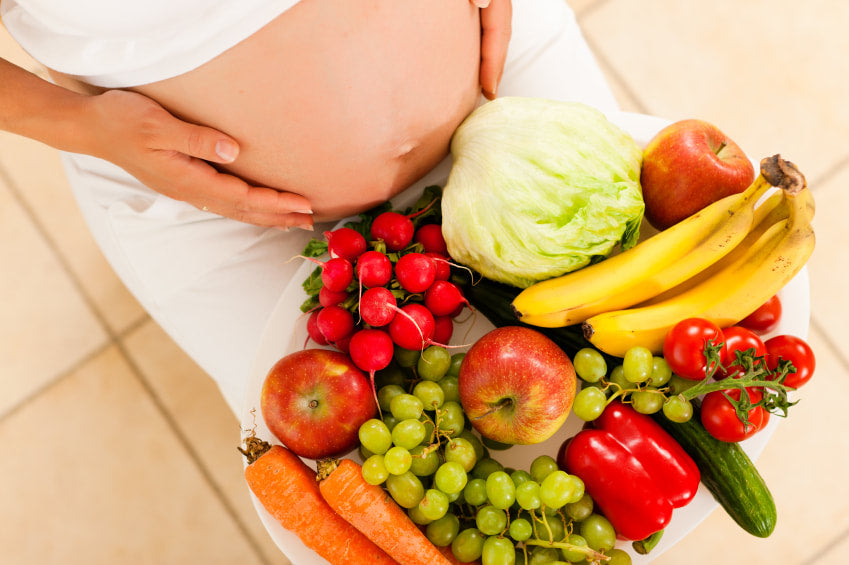There are endless questions flooding through a women’s brain while she is pregnant. Nutrition and nourishing her body should not be adding to that stress. The goal is to simplify nutrition into an attainable and sustainable menu for success.
Whole foods first and foremost.
I will say this once, a colorful plate is your best friend. The more variety of foods you consume the better! For example, a red bell pepper is high in vitamin C, carrots are high in Vitamin A, and chicken is high in Vitamin B12 and protein of course. Every food serves a purpose in your diet, therefore the more diverse your plate looks at every meal ensures you are meeting all your and your babies’ nutrient needs.
On the other hand, you are growing a tiny human which is hard work! And I completely understand that no one has the perfect diet. That is why it is recommended to take a prenatal vitamin during pregnancy as well. This vitamin is a supplement, simply a catch all for the nutrients you are missing or not getting enough in your diet. Prenatal vitamins, however, are not a substitute for a well-balanced diet. They work harmoniously to provide mothers with the optimal nutrition needed to grow a healthy baby.
Additionally, your prenatal vitamin should include approximately 27mg-45 mg of iron and 400 mcg of folate (folic acid) as well as the other vitamins/minerals.
The overall goal is to keep nutrition and food simple. Especially when there are a variety of different things grabbing at your attention. Food should bring you joy, not more stress.
Important tips to remember:
- Eat a well-balanced diet (and foods you enjoy!)
- Take your prenatal vitamins
- Drink your water (8-12 cups per day)
Limitations to remember:
- Recommended to avoid raw or undercooked meat, shellfish, deli meat, fish with high levels of mercury, smoked seafood, raw eggs, soft cheeses, unpasteurized dairy, and alcohol.
- Recommended to limit caffeine intake to 150 -200 mg per day (about 1 -2 cups of coffee, teas, or soft drinks).
By Dr. Kathleen McCue

